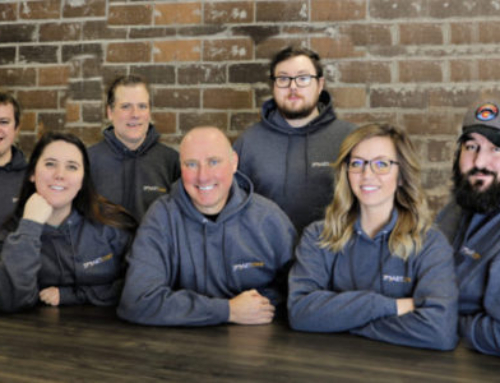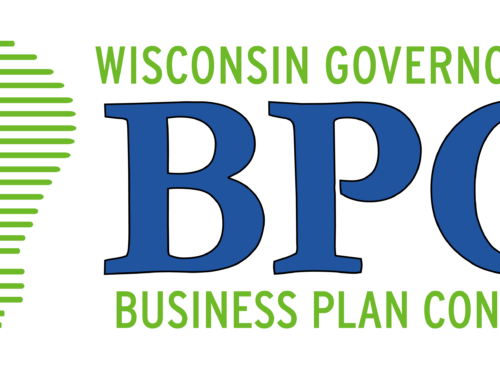After receiving grants from WEDC’s Capital Catalyst Program for three consecutive years, the Whitewater community has experienced an increase in startup activity and business development. WEDC provided a $150,000 Capital Catalyst grant to the Whitewater Community Development Authority (WCDA) in 2013, an additional $250,000 in 2014, and a recent award of $200,000. This funding, along with the required match provided by WCDA, has made $1.2 million available to area companies.

WEDC officials were on hand March 13 to present a $200,000 Capital Catalyst grant to the Whitewater Community Development Authority.
Capital Catalyst provides matching grants to seed funds that support new and emerging high-growth companies. The program is designed to stimulate capital investment at a local and regional level, to support R&D-to-commercialization, and to increase the number of high-potential startups in the state.
Through the program’s funding, Whitewater startups and businesses in the early stages of growth have been able to greatly accelerate the business development process. Pat Cannon, Whitewater’s CDA coordinator, explains that many of the companies that have received assistance are in their infancy and are using the funds to pay for small, yet important, startup costs such as patents, new equipment and rent for a business space.
“These grants are significant for local companies that are just getting started,” said Cannon. “We’ve seen these companies use the funds to get to the critical scale-up phase, and it’s great to see the increase in business activity that’s stemmed from programs like Capital Catalyst.”
Meeper Technology, LLC is using the funds to prototype and tweak the design of its product, MeeperBOT, which adds a motor to a Legos® vehicle, operated by Bluetooth through an application that can run on any smart device. Cofounded by Jim Brandon and Liz Eversoll, Meeper is housed in the Whitewater Innovation Center and uses 3D printers to design and build its product. Brandon believes that as the company expands, it will be able to remain local by drawing from resources available in Whitewater and throughout Wisconsin.
Another Whitewater Innovation Center-based company, Thermodata, markets temperature monitoring systems for the health care, food service, scientific research, and public health sectors, and recently received a Capital Catalyst grant as well. Up until a few months ago, Thermodata was headquartered in Massachusetts, but was drawn to Wisconsin through its work with iButtonLink, which is also housed in the Center.
iButtonLink produces sensors that are an integral feature within Thermodata’s temperature monitoring systems. Company officials at Thermodata decided it would be advantageous to relocate to the same facility as iButtonLink, so they could work closely and continue to provide high-quality monitoring systems.









FOLLOW US